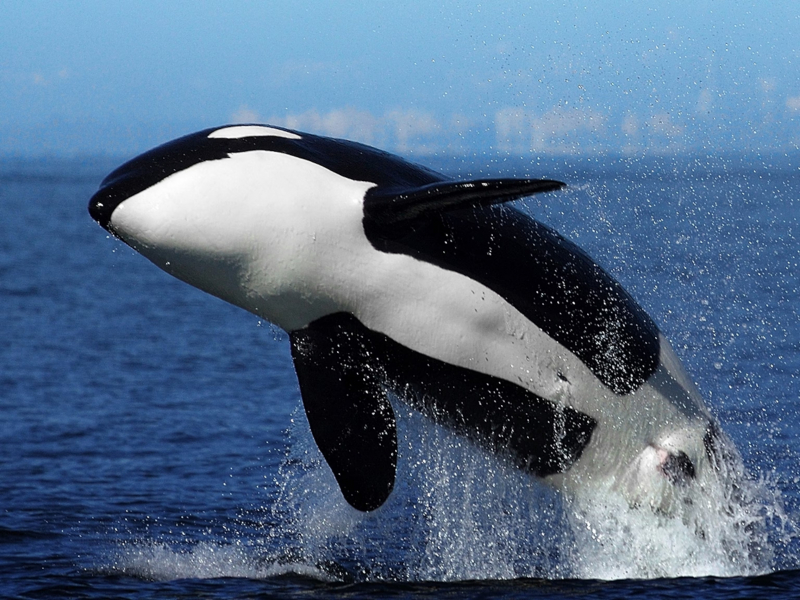Orca
The orca, or killer whale (Orcinus orca), is one of the most iconic and intelligent marine mammals, captivating human fascination with its distinctive black and white markings and highly social behavior. As the largest member of the dolphin family, the orca is renowned for its complex social structures, exceptional hunting skills, and wide distribution across oceans.
Orca populations are found in both polar and tropical waters, demonstrating their adaptability to various climates and environments. With a diverse diet that includes fish, squid, seals, sea lions, and even other whales, orcas are apex predators and exhibit remarkable cooperative hunting techniques. Different populations have developed unique hunting strategies, showcasing the cultural diversity among orca groups. Some specialize in herding fish, while others are known for their sophisticated techniques in capturing marine mammals.
A defining characteristic of orcas is their strong social bonds. They live in matrilineal family groups called pods, led by an older female known as the matriarch. These pods consist of her offspring and can include multiple generations, fostering a sense of community and cooperation. The bonds within pods are so strong that individuals rely on each other for hunting, protection, and social interaction. Communication among orcas is intricate and involves a repertoire of clicks, whistles, and pulsed calls that contribute to their sophisticated language and echo-location abilities.
In captivity, orcas have been a subject of controversy due to concerns about their welfare in confined environments like marine parks. Documentaries such as "Blackfish" have shed light on the physical and psychological challenges faced by orcas in captivity, sparking debates about the ethical implications of keeping these intelligent and wide-ranging animals in enclosed spaces.
















